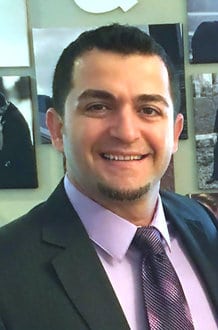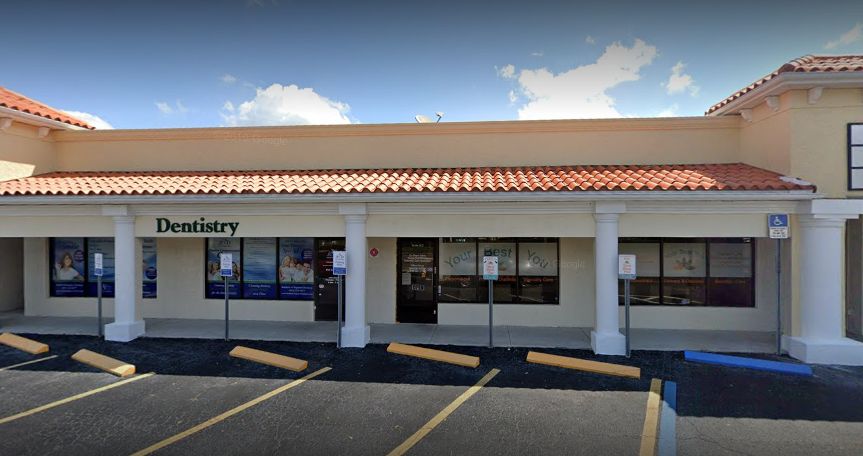Dental implants are a permanent and appealing solution to replace missing or extracted teeth. They are better than other alternatives like bridges because no additional teeth need to be altered to place the new tooth.
The entire implant process is performed over the course of a few months. The first part of the process is to install the implant itself, where a screw is placed into the jaw bone. An incision is made in the gum so that the implant can be inserted. Multiple implants can be placed at once if necessary. After the implants are placed the gums are sutured.
The implant must be allowed about 3-6 months to heal, and during this time the jaw bone will form around the implant in a process called osseointegration. During this healing time you can have temporary crowns installed so that you can eat and speak normally and maintain a proper aesthetic appearance for your smile.
After the implant has healed it is time to place an abutment on the implant. The abutment serves as the base for your new tooth. One this is placed an impression of the abutment is taken and is used to create your permanent restoration. Some offices have an onsite lab to create the crown, but others will have to send it to an outside lab. Once the restoration is completed you can return to the office to attach the restoration permanently. Your smile will look just like it used to, and after a short period of getting used to the implant it will feel just like one of your own teeth.
Root Canal
Endodontics is the dental specialty that deals with the nerves of the teeth. Root canals are probably the most notorious procedure in dentistry and the most common procedure relating to endodontics. When a tooth becomes infected it is usually related to the nerves in the root of the tooth. The infected nerves need to be removed. If left untreated an infection can turn into an abscess, which is a much more serious problem that includes bone loss in the jaw.
The area around the tooth is numbed with a local anesthetic to start the procedure. The dentist will then drill down into the tooth to create an opening into the canal. They will then be able to remove infected tissue and clean the canal. After the infection has been removed, the space if filled with a sealant called gutta percha. It is highly recommended that a tooth that has undergone a root canal is fitted with a crown. This will improve the appearance of the tooth, and will also make it much more likely that the root canal is successful.
“Root canal” has become a scary term for dental patients to hear, but the benefits of the procedure and advances in dental technology have made it much less “scary”. Local anesthetics and proper pain medication allow the procedure to be performed with little to no pain in most cases. There may be some soreness following the procedure, but that is normal for most dental procedures. Over the counter painkillers are usually enough to relieve any pain afterwards, but your dentist may prescribe medication. The procedure will also relieve you from pain caused by the infection allowing you to enjoy all the foods you love without any pain from heat, cold, or biting too hard. If you are experiencing pain consult your dentist today.
Endo Microscope
The use of the Endo Microscope allows a doctor to perform procedures with greater accuracy because the treatment area is magnified. The microscope’s superior illumination and magnification has made the greatest impact on visualization of the area, evaluation of surgical technique and use of fewer x-rays. With the unique ultrasonic unit and tips, a separated instrument or silver point can be removed with less effort. Fourth canals are now routinely being located and completely debrided in virtually all molars, thus increasing the long-term success rate with root canal therapy.
Periodontal Disease Treatment With Laser Technology
Periodontal gum disease is an infection in your gums caused by bacteria. It can cause pain, swelling, bleeding, and tooth loss. Usually gum disease occurs in patients who have neglected their dental care, who suffer from certain medical conditions, or who lack the dexterity to maintain the home care necessary to stay healthy.
In addition to tooth loss, gum disease has been linked to serious systemic illnesses, such as heart disease, diabetes, and respiratory illnesses. Failure to treat periodontal disease can have serious consequences, but many patients hesitate to seek treatment due to fear of pain. We treat our patients gently and with care so that you feel comfortable during your procedure.
When we catch gum disease in its early stages of development, we can generally treat it with specialized dental cleanings that remove bacteria and promote healing. However, once gum disease begins to destroy your healthy tissue, surgery could become necessary to promote proper healing and restore your oral health.
Cone Beam CT Scanner
One of the technologies that we utilize is the Cone Beam CT Scanner. This imaging technology produces a 3D images of the patient’s mouth. This allows a precision diagnosis. The surgeon is also able to tell whether it is necessary to perform a bone grafting or sinus lift to complete the total procedure. The 3D technology provides a level of accuracy that is not present with 2D technology.




